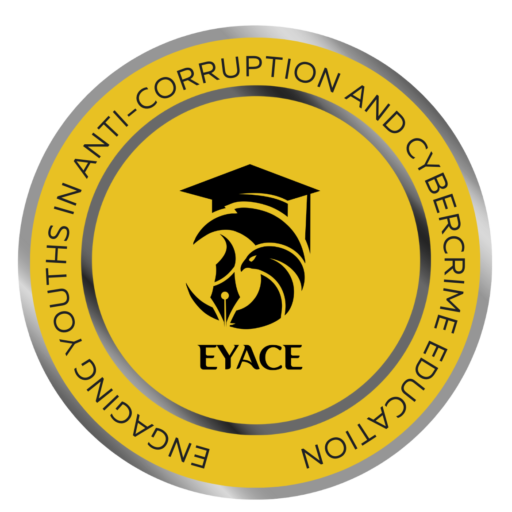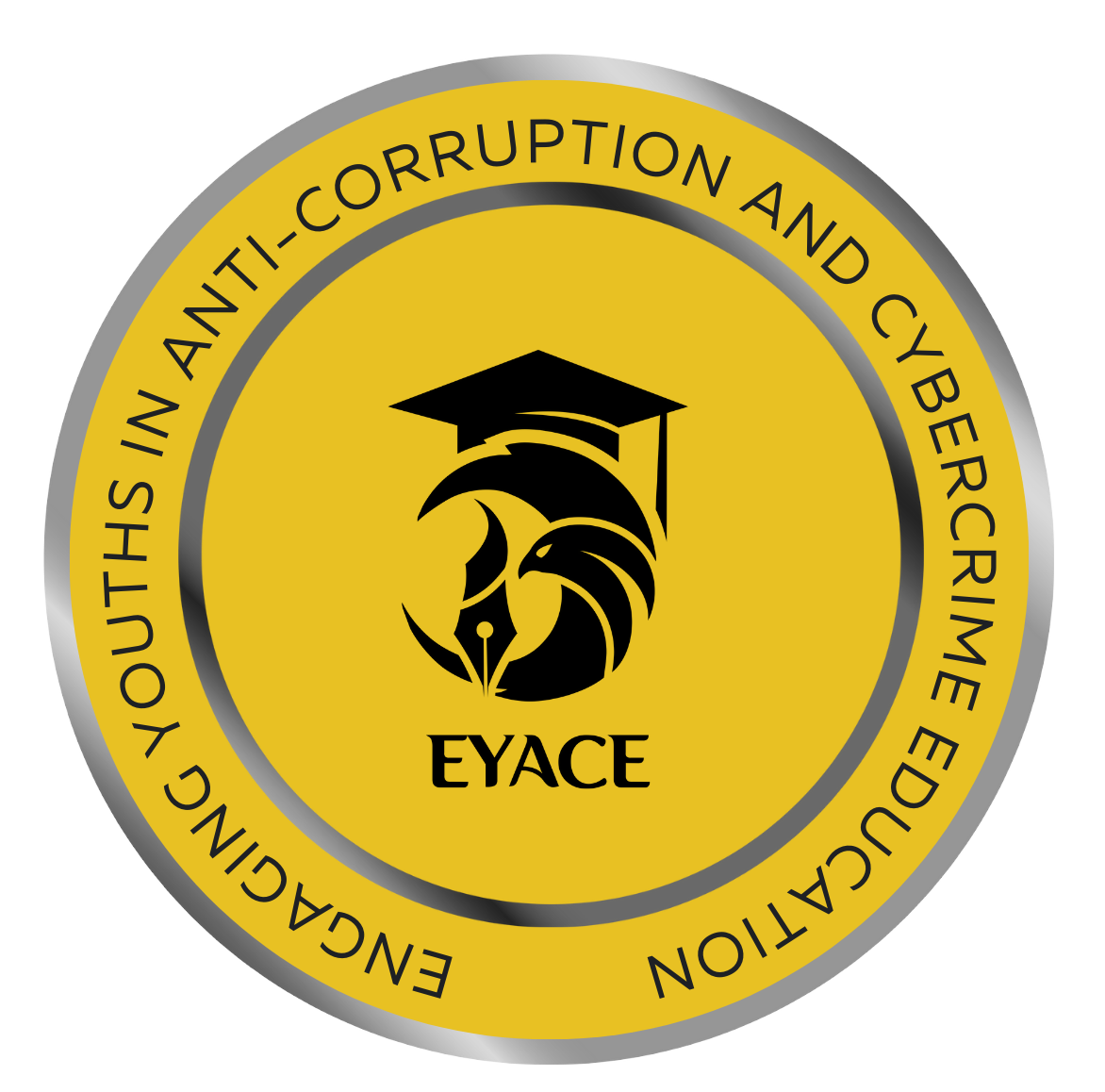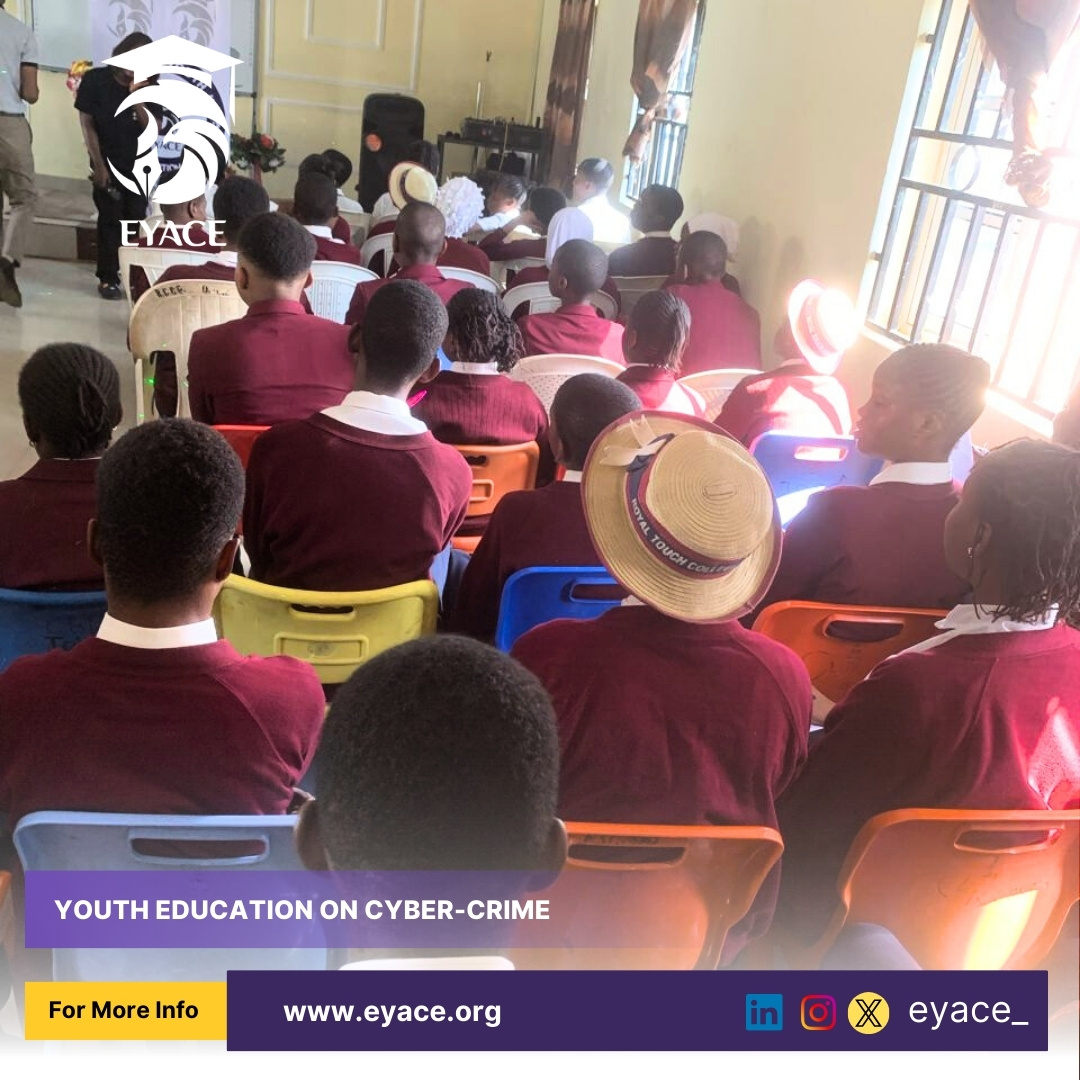Below are some of the problems we are solving
Engaging youths in anti-cybercrime and anti-corruption education can positively impact society by addressing various problems. Here are some key issues that such education initiatives aim to solve.
-
Reducing Cybercrime rate:
- Awareness: Many youths may engage in cybercrime due to a lack of awareness about its consequences. Education programs can help inform them about the legal, ethical, and social implications of cybercrime, leading to a reduction in such activities.
- Skill Development: By providing youths with ethical hacking skills and a better understanding of cybersecurity, education programs can channel their interest in technology towards productive and lawful endeavours, reducing the pool of potential cyber criminals.
-
Protecting Individual and Organisation:
- Enhancing Cybersecurity: Educating youths on the importance of cybersecurity can contribute to the overall resilience of individuals and organizations against cyber threats. This helps in safeguarding sensitive information, financial assets, and critical infrastructure.
- Preventing Identity Theft: A better understanding of cyber threats can empower youths to protect themselves and others from identity theft, safeguarding personal and financial information.
-
Fostering Ethical Behaviour:
- Promoting ethical decision-making: Anti-cybercrime education emphasizes ethical behaviour in the digital space. This can influence the decision-making process of youths, encouraging them to choose legal and ethical paths in their online activities.
-
Combating Corruption:
- Promoting Integrity: Anti-corruption education instils values of transparency, integrity, and accountability in youths. Developing a strong ethical foundation makes them less likely to engage in corrupt practices, contributing to a more honest and transparent society.
- Creating Informed Citizens: Educating youths about the consequences of corruption and its negative impact on society empowers them to become informed citizens who actively work towards a corruption-free environment. This can lead to increased public awareness and participation in anti-corruption efforts.
-
Building a Responsible Digital Society:
- Encouraging responsible online behaviour: Anti-cybercrime education teaches youths about responsible online behaviour, including respecting privacy, avoiding online harassment, and understanding the consequences of their digital actions.
- Digital Citizenship: By instilling the principles of digital citizenship, education programs contribute to creating a responsible and ethical digital society where individuals understand their rights and responsibilities in the online world.
In summary, engaging youths in anti-cybercrime and anti-corruption education addresses several societal problems by reducing cybercrime rates, protecting individuals and organizations, fostering ethical behaviour, combating corruption, and building a responsible digital society. These initiatives contribute to the overall well-being and safety of the community.








